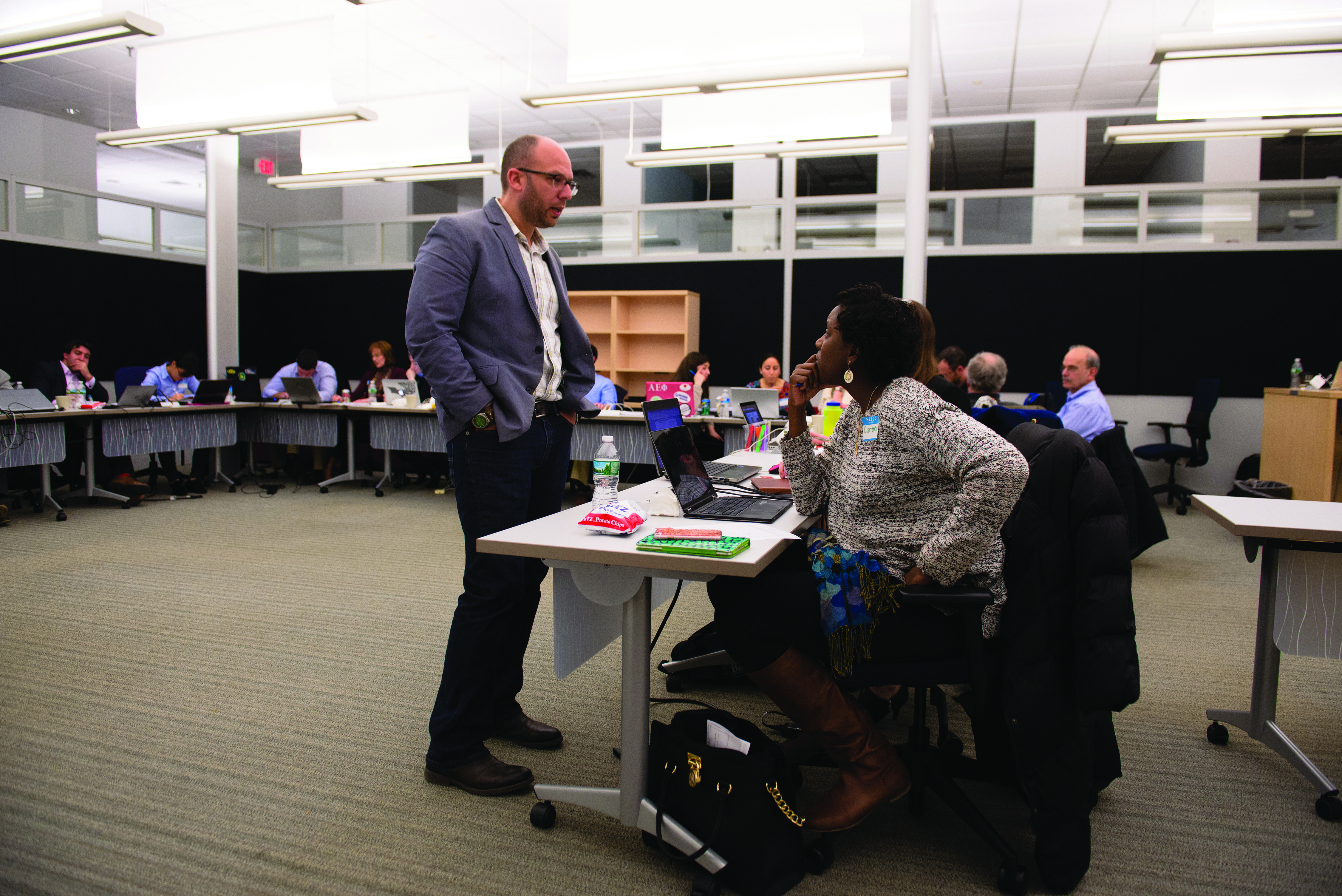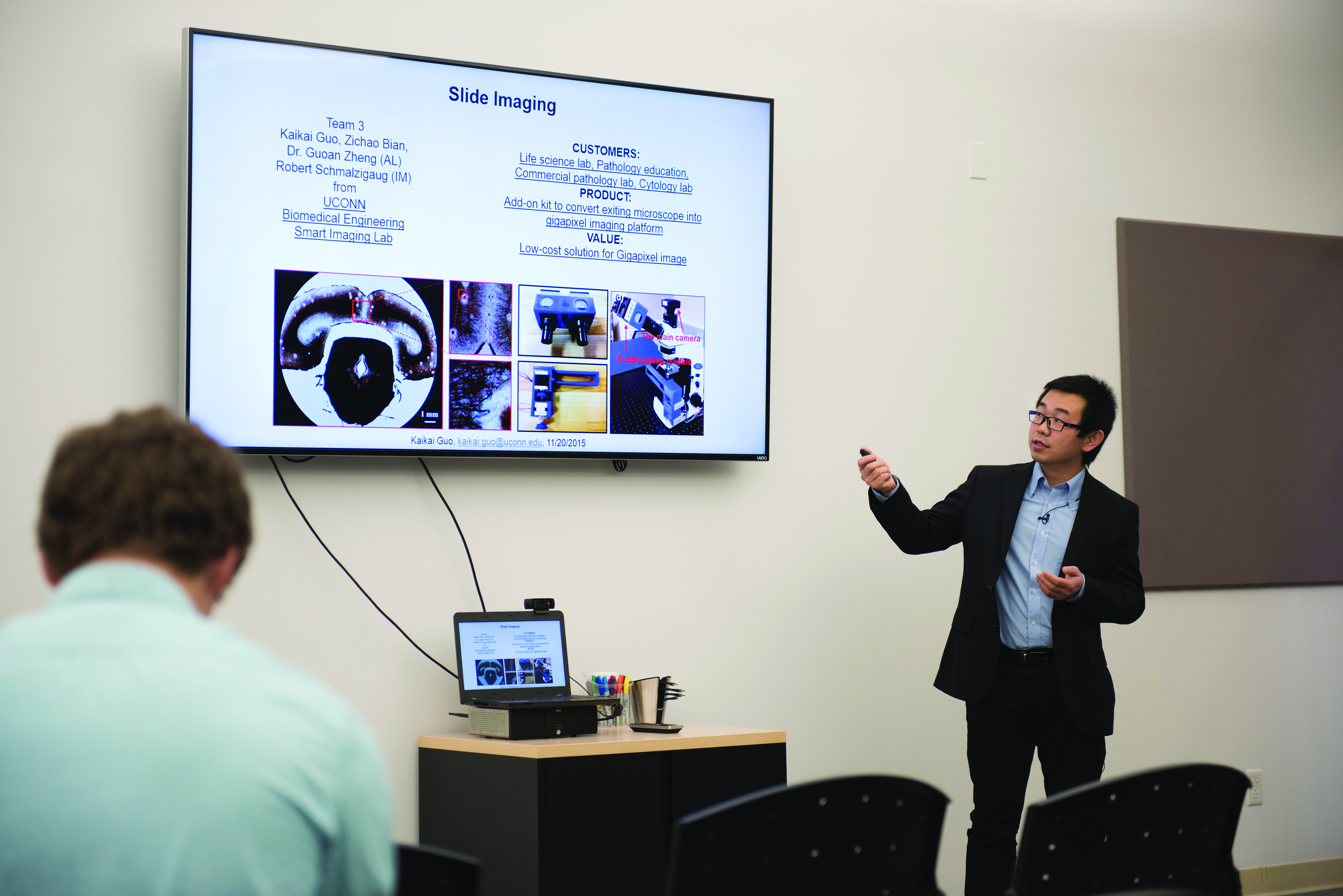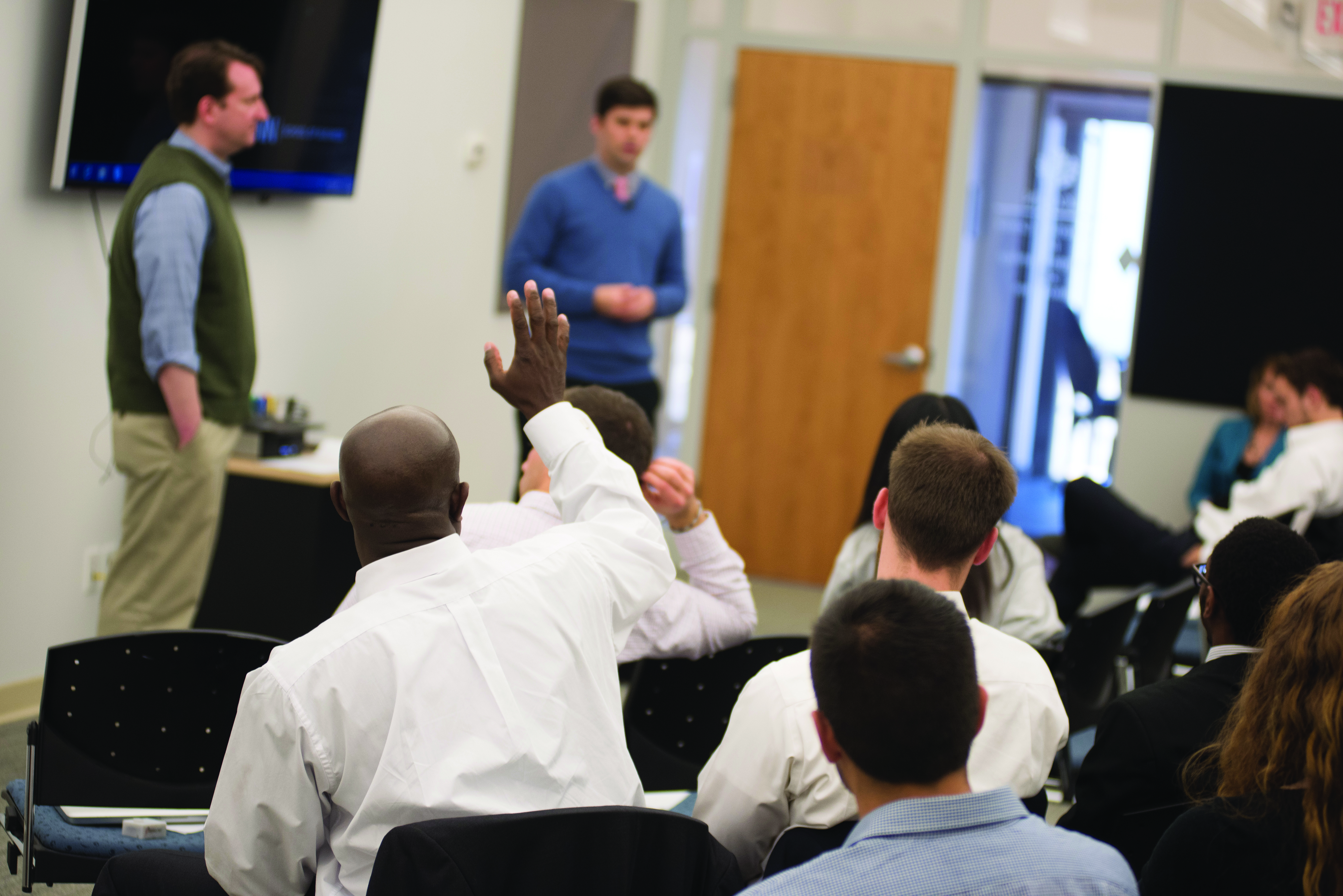As the School of Business prepares for its next 75 years of success, there are two important beliefs shared by its leadership.
The first is the recognition that we are in an era of rapid change in the business world, and that embracing and advancing that change will be both a mission, and thrilling challenge, in the years to come. The School must continue to evolve and grow to meet the needs of a diverse and changing business climate. We will explore new course offerings, expand our academic emphasis as needed, and prepare students with new classroom and real-world learning opportunities in order to meet, and exceed, the needs of tomorrow’s business climate.

As it was in the 1980s, business is a much-sought-after major today. Interest and enrollment in the School of Business has spiked in recent years, as a new generation of students seek to become entrepreneurs or to re-examine the roles of leadership in traditional, established corporations. The combination of a changing business climate and tremendous student interest positions us in an exhilarating point in our development.
Secondly, collaboration with business partners and across academic disciplines will undoubtedly be even more important than in years past. As a state, Connecticut has eagerly adopted a stronger appreciation for science, technology, engineering and math and the many opportunities those disciplines can bring to our state, our nation and our world.
Our business expertise fits hand-in-hand with those opportunities, for even the greatest, life-changing idea won’t come to fruition without a good business plan. We ask ourselves: how can we help that engineering student develop the next great invention? How can we design a business plan for a new cancer treatment? Our newest role is to partner with those who are changing the future, through invention and innovation, and serve as a collaborator on that journey.
We are at the forefront of that change through the Connecticut Center for Entrepreneurship and Innovation (CCEI). Led by Management Professor Timothy B. Folta, the Thomas John and Bette Wolff Family Chair of Strategic Entrepreneurship at UConn, CCEI heeds the statewide call for new medical technology and marketplace innovation. Its Accelerate UConn program, funded by the National Science Foundation, helps faculty, graduate students and entrepreneurs improve the commercial potential of technologies, even supplying start-up capital to get products and ideas to consumers, Folta said. The Center has numerous other initiatives and collaborations to advance those efforts.


The foundation for all these exciting initiatives is the School’s strong ties with local companies, said Lawrence Gramling, assistant professor and associate dean of undergraduate programs. “This is very much about relationship building,” he said. UConn collaborates with the larger business community and in exchange, corporations extend to our students the opportunity to learn outside the classroom.
“There is tremendous synergy in going out to work in any kind of a professional environment where whatever they studied is being used,” said Gramling. Our alumni are 40,000-strong and many of them go out of their way—from providing scholarships to mentoring—to help our students on their career path.
As our world has become more connected, so has the School’s approach to education. UConn is one of only 17 universities honored to host a Center for International Business Education and Research (CIBER) program. The designation, by the U.S. Department of Education, recognizes UConn as one of the universities capable of increasing the competitiveness of U.S. businesses in the global marketplace.
All of these accomplishments have Dean Elliott optimistic and enthusiastic about the future growth of the program he oversees.
“Today we are a top-ranked school of business and a top 20 public research university,” Elliott said. “As for the future, we know it will be characterized by change … by closely observing the needs of the world economy for knowledge and talent, we will continue to help prepare our students to effectively embrace change. It is an exciting time.”


